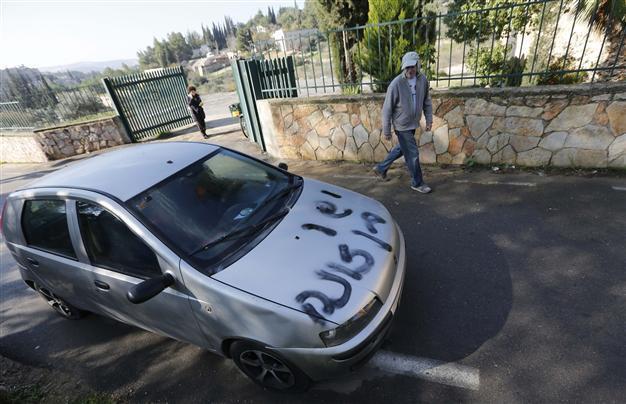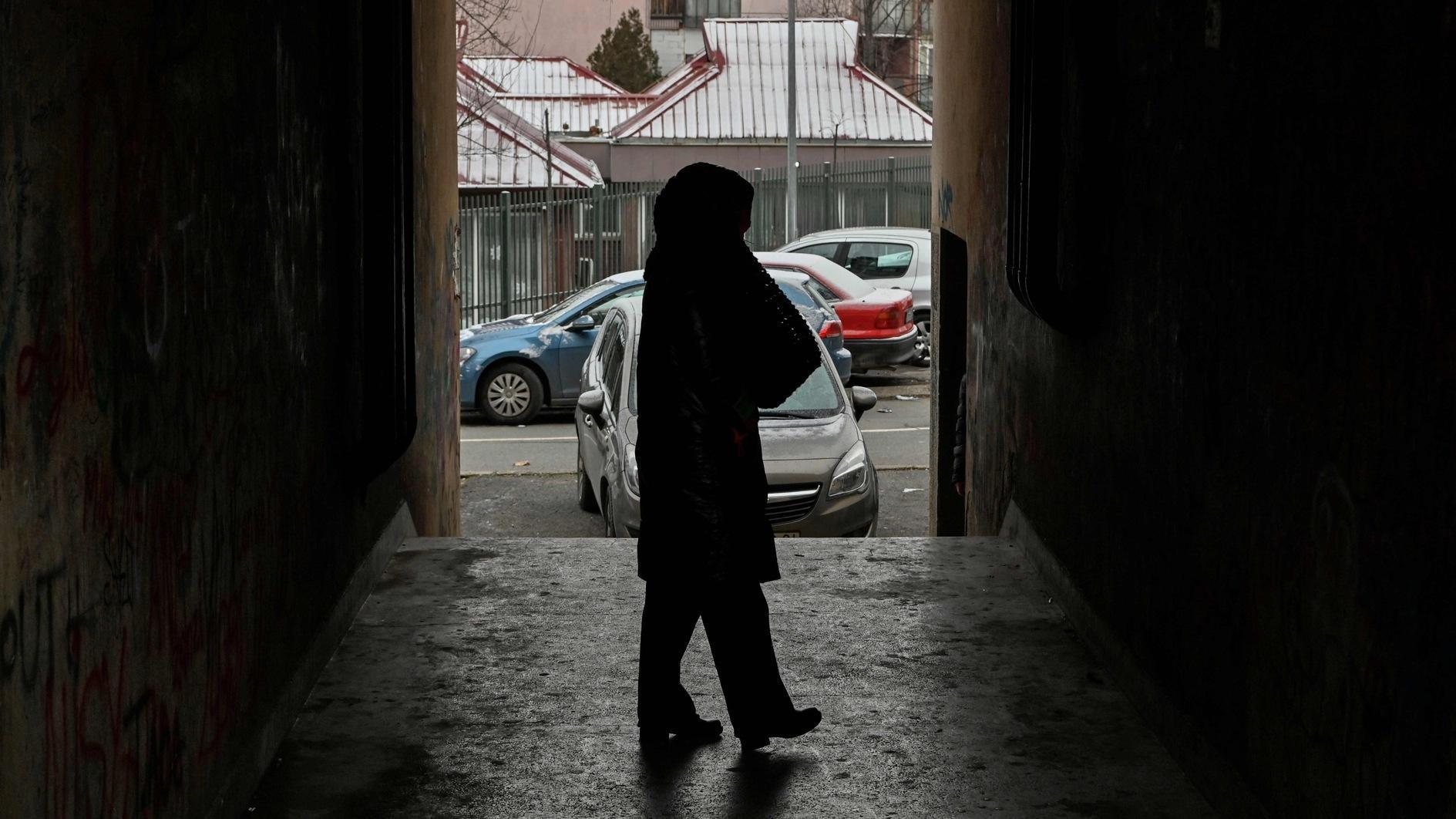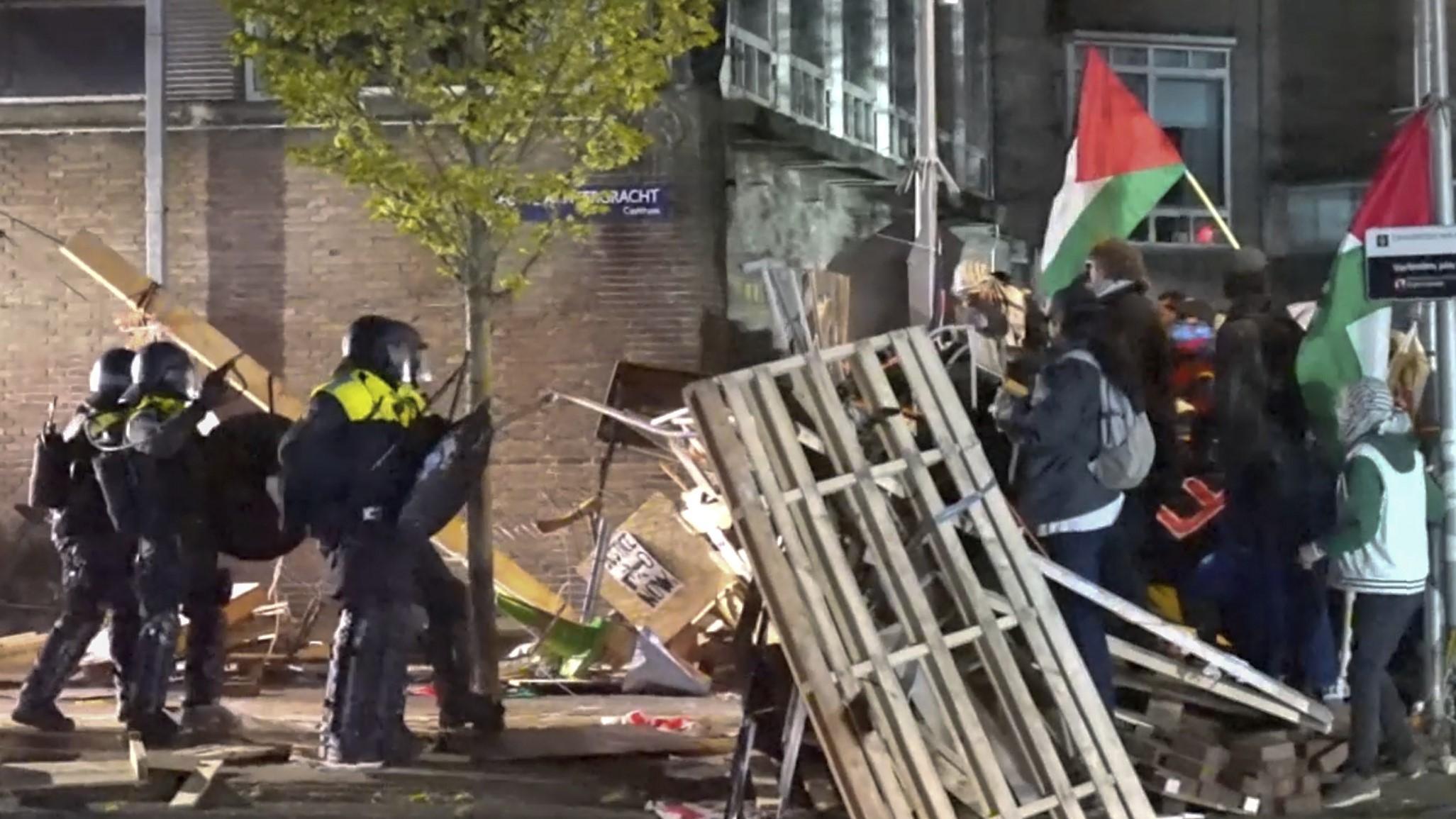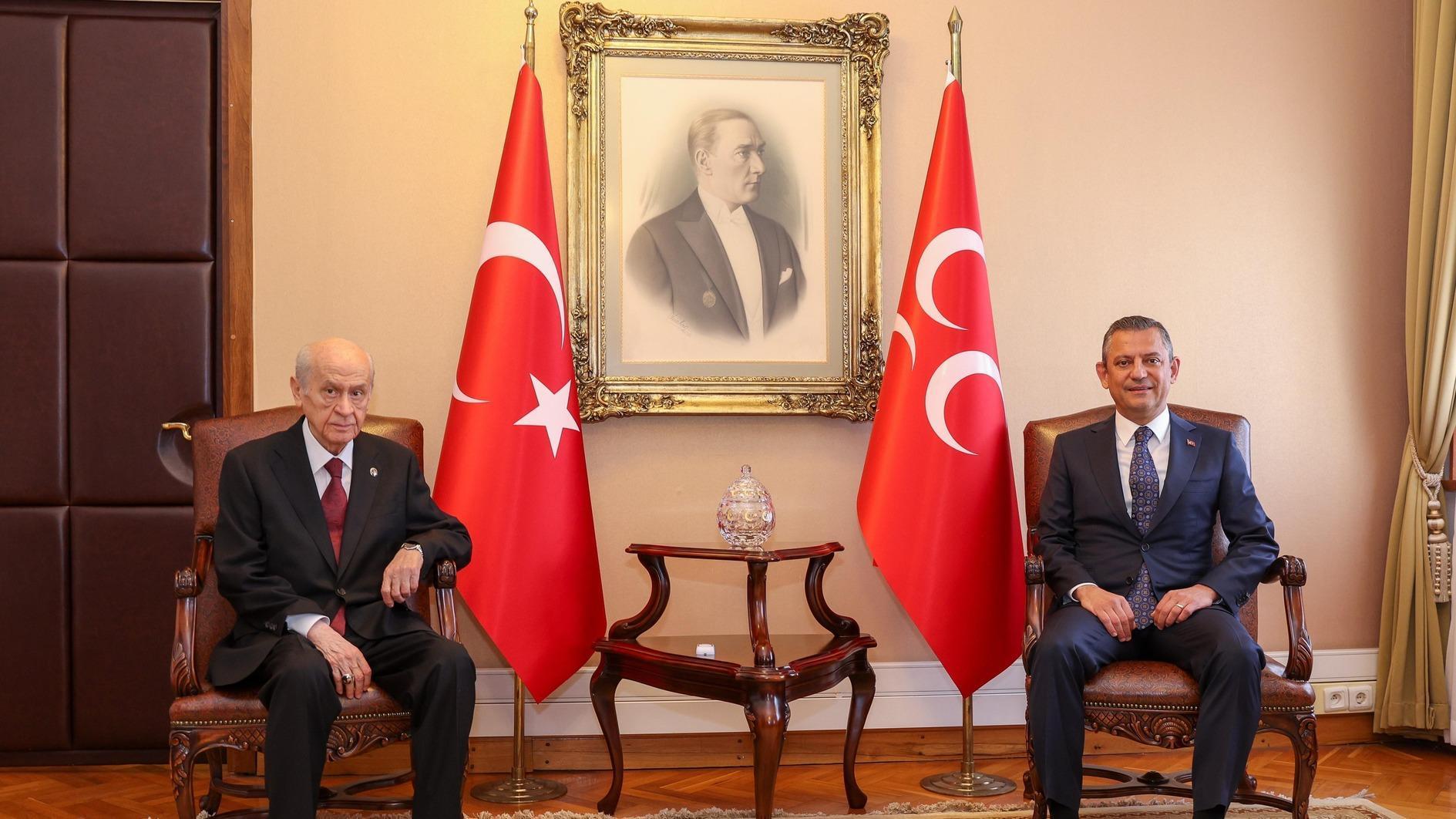Israeli settlers indicted over 'price tag' attack
JERUSALEM - Agence France-Presse

A man walks past a car spray-painted with graffiti outside the Monastery of the Cross in Jerusalem December 12, 2012. REUTERS photo
Three Israeli settlers in the West Bank were on Monday charged in Beersheva district court with carrying out a "price-tag" attack against Palestinian property, the justice ministry said.According to the chargesheet, the three men, in their 20s, drove to the West Bank village al Asja, northeast of Dhahiriya in the southern Hebron hills, on December 2.
There they set a car on fire and sprayed "price tag" and "Mazal Tov" (congratulations) on a nearby wall.
They then headed to the nearby village of Samu but were intercepted en route by Israeli police, who arrested them after a short pursuit. A fourth suspect managed to escape.
"The indictment includes charges of conspiring to commit a crime, arson, using a vehicle to commit a crime and assaulting a police officer," the justice ministry said.
Price tag is a euphemism for revenge hate crimes by Israeli extremists, which normally target Palestinians and Arabs.
Initially carried out in retaliation for state moves to dismantle unauthorised settler outposts on the West Bank, they have become increasingly unrelated to any specific moves.
The attacks tend to involve the vandalism or destruction of Palestinian property and have included multiple arson attacks on cars, mosques and olive trees. The perpetrators are rarely caught.
The chargesheet contains an introduction explaining price tag attacks.
"The 'end-goal' of 'price tag' attacks is to sway decision-makers in Israel away from using their legal authority to evacuate West Bank settlements and outposts", it reads.
Last year, police say 65 indictments were handed to extremists suspected of assault or for causing property damage in price tag attacks.
Despite the rising number of arson attacks, police say they are often unable to press charges for lack of evidence.
















